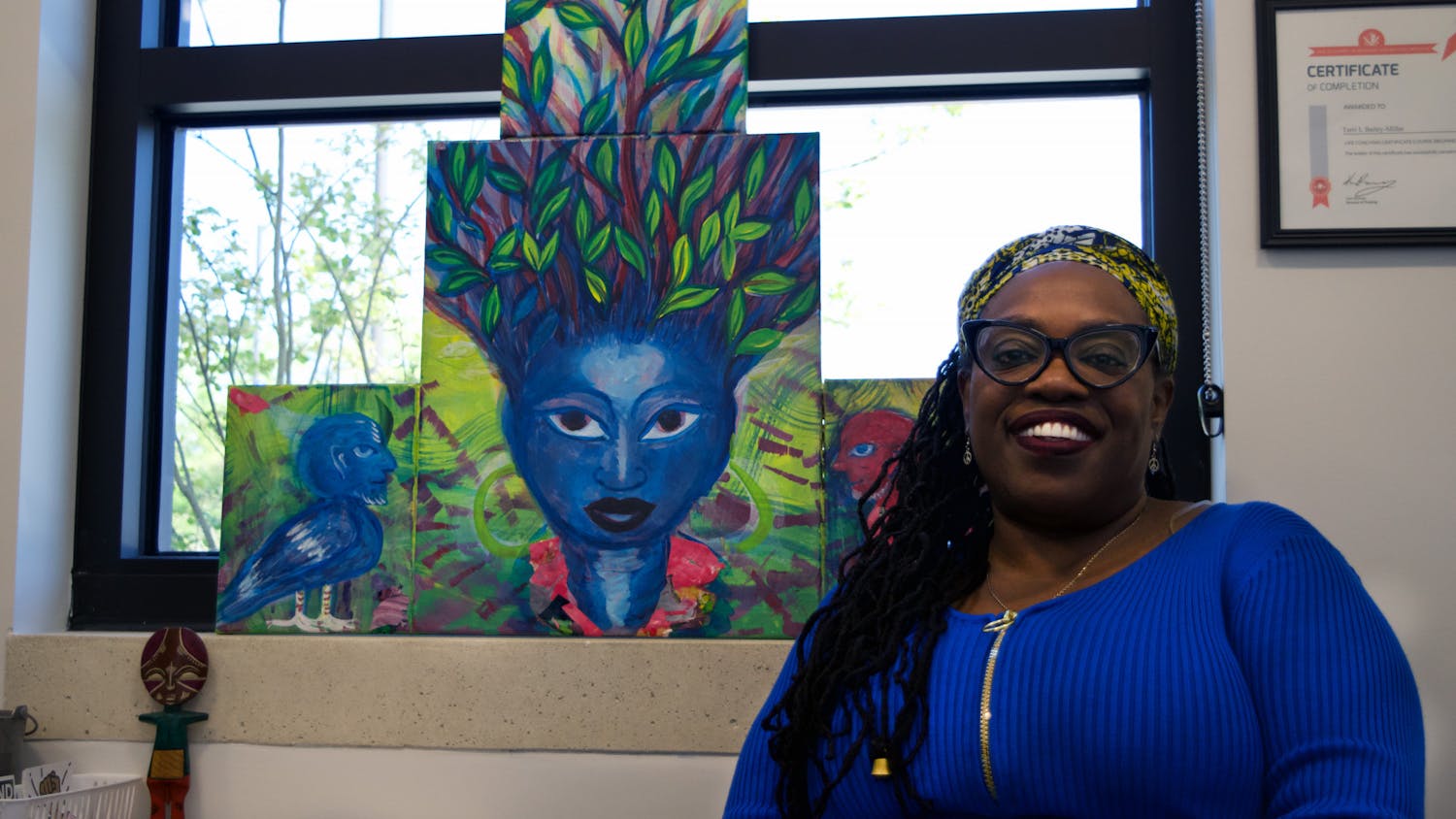Gainesville residents can enjoy a night of art, poetry and call for social change to celebrate the 50th anniversary of African-American studies at UF and the life of Martin Luther King Jr. on Thursday.
Spoken word, visual and musical artists will perform at the Harn Museum at 6:30-8:30 p.m. The event is a collaborative production from the museum, the College of Liberal Arts and Sciences and the African American Studies Program.
Many of the poets will use the power of their voices to shed light on social issues, like Martin Luther King Jr. did decades ago.
African American Studies program chair member Ashley Robertson Preston arranged the event by employing local and student artists.
Preston planned the anniversary event because she wanted to celebrate the life of King.
“We have been looking at creative ways, yet meaningful ways, to celebrate,” she said.
King's assassination profoundly impacted the African American studies movement. After his death, students started demanding the program, according to Preston.
Yvonne Ferguson will be live-painting during the event and African drummer Kofi Horne will also be performing.
Attendees will also be given the opportunity to perform. There will be a half-hour period when anyone from the audience can express themselves through poetry.
Poetry is a powerful means of communication, said Sharon Burney, the program assistant for African American Studies.
“Spoken word is used to inspire,” she said. “Spoken word is used to teach. Spoken word is used to define ourselves.”
Event organizers hope the event inspires attendees to express themselves and make a difference in society.
“I hope that people will walk away from this event thinking more about how they can effect change in the spirit of Martin Luther King,” Preston said.
Burney wants attendees to come to the event and understand the vastness of black culture and history.
“I hope they come and can be still in the moment and listen without guilt, listen without control, listen without constructing anything other than what the artist voices,” Burney said. “So that their voices can be heard in a society in which they often feel silent.”





